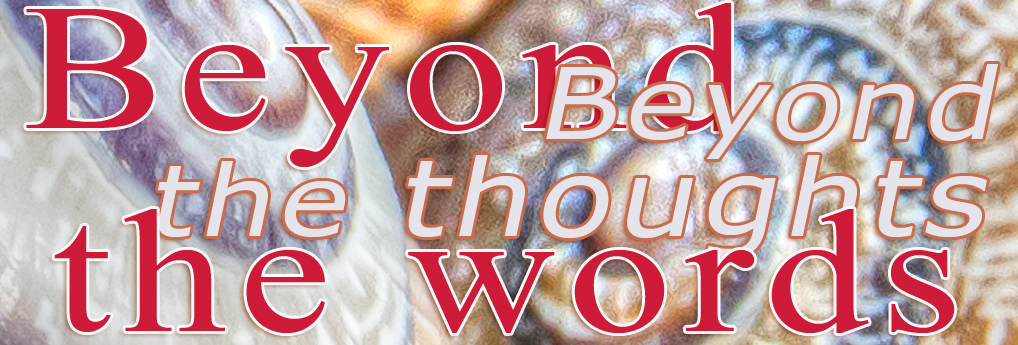There is a little Daoist story about two princes who were always very hospitably received by a third person in his kingdom. But the third had no sense organs. So the two princes thought they would be doing the friendly prince a favor if they helped him to have sensory perceptions. So they drilled a hole for the prince every day. And on the seventh day (after he had seven holes, i.e. ears, nostrils, mouth and eyes) the friendly prince was dead….
The friendly prince also had a name. I have not called him with care yet. The name is translated from Chinese very differently. For example, this story was mentioned in a scientific paper of the 60s of the last century. The scientist translated the name of the friendly prince as „chaos“. A mystic of the late nineteenth century, on the other hand, translated the prince’s name as „the unconscious one.„ From these two different perceptions by science and mysticism it becomes clear once again how far science, the separative, material aspect of our world, is from soul perception in its view of the world. From the scientist’s point of view of a decade of belief in technology and science, a time when women still had to ask their husbands if they were allowed to work or get their driver’s license, a time of unvarnished male supremacy and discrimination against the feminine, which was also dogmatically considered to be completely in order, the two princes defeated „chaos“ by replacing it with the ego – the masculine – and thus abolished the „mess“ of „disordered“ nature – killed it. The rational masculine kills – rightly – the „chaotic“ feminine.
The mystic sees in the story how the unconscious is erased by the ego. All with the best of intentions. But still it is killed and only the perceptions of the mind remain. With the one-sided view represented by the two so well-meaning princes.
The „chaos“ or the „unconscious“. An interesting pair of terms. Chaos is stigmatized as that which the mind cannot grasp. That is the only criterion. And the only available solution is death. The death of chaos – or just of the unconscious. For the scientist, everything that cannot be rationalized through the five senses is chaos and belongs to be abolished. He dedicates his life to this goal through his work. How should he be able to understand such a story then also differently. The unconscious has no right to exist for him. It must be made conscious. Otherwise the world is not in order… If there is something which the ego cannot grasp, then the world is not yet in order.
From a spiritual point of view, the story conveys the path. And also how it can be committed wrongly. The ego enters the realm of the soul as a guest and together the three princes make a common whole, a great harmonious union of three realms. The two realms of the ego (there may be two and not one, to bring out the ego’s inherent principle of separation) and the one prince of unity. However, the „ego princes“ do not recognize the state of harmony. They want to „improve“ everything again. It is not enough for them in this way, although everything is fine, because in their view everything is only fine when everything is ego. Everything is conscious and only the five senses have validity. So they have taken the friendly prince out of his deep calmness and darkness and silence and so they have carelessly and in the best naïve ego way disposed of the unconsciousness of the world. And probably now they are bitterly fighting for its kingdom….
